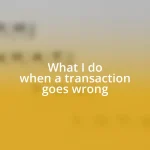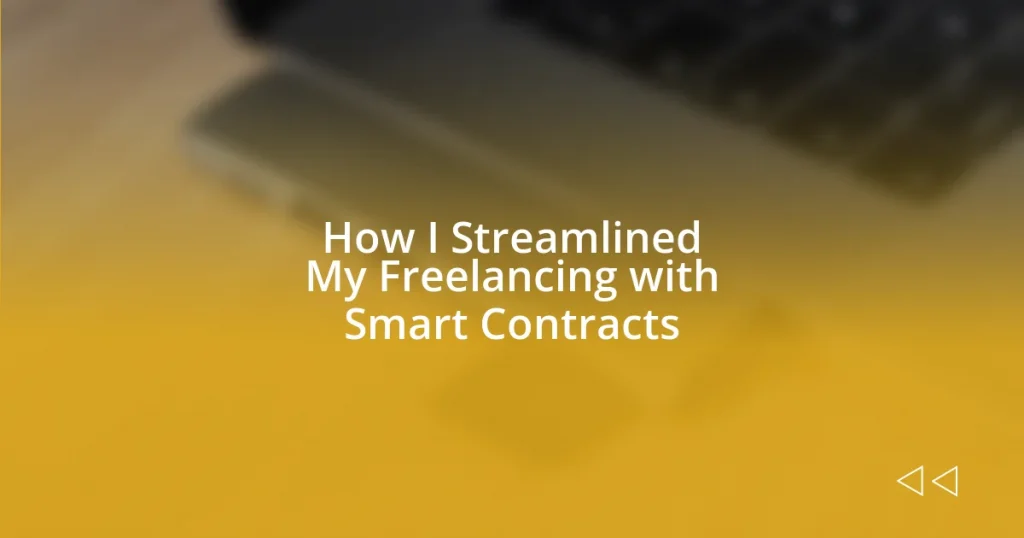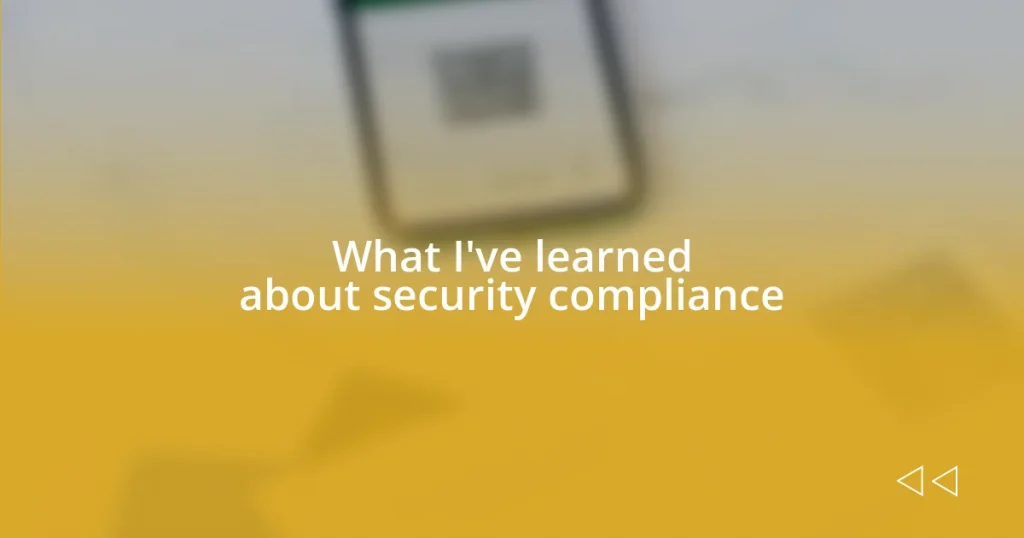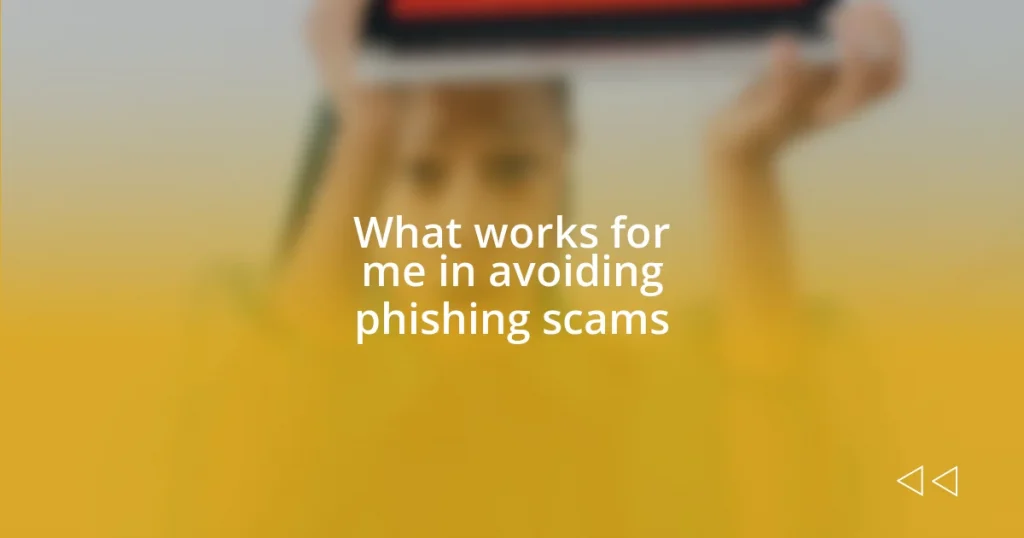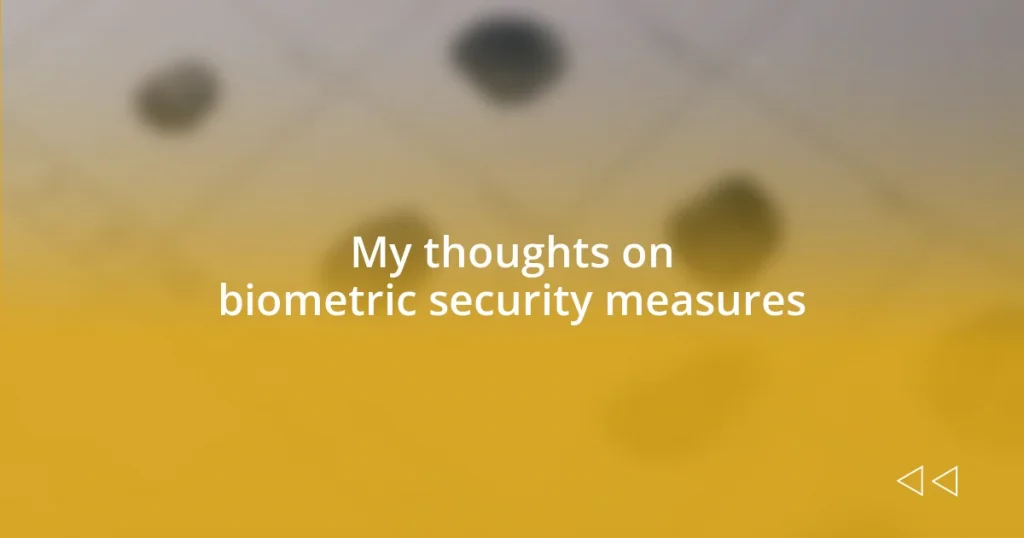Key takeaways:
- Smart contracts automate transactions, enhancing transparency and security for freelancers by eliminating the need to chase payments.
- Choosing the right blockchain platform (e.g., Ethereum, Binance Smart Chain) is crucial, considering usability, community support, and transaction costs.
- Avoid common mistakes by being thorough in drafting contracts, rigorously testing them, and engaging with community support for resources and solutions.
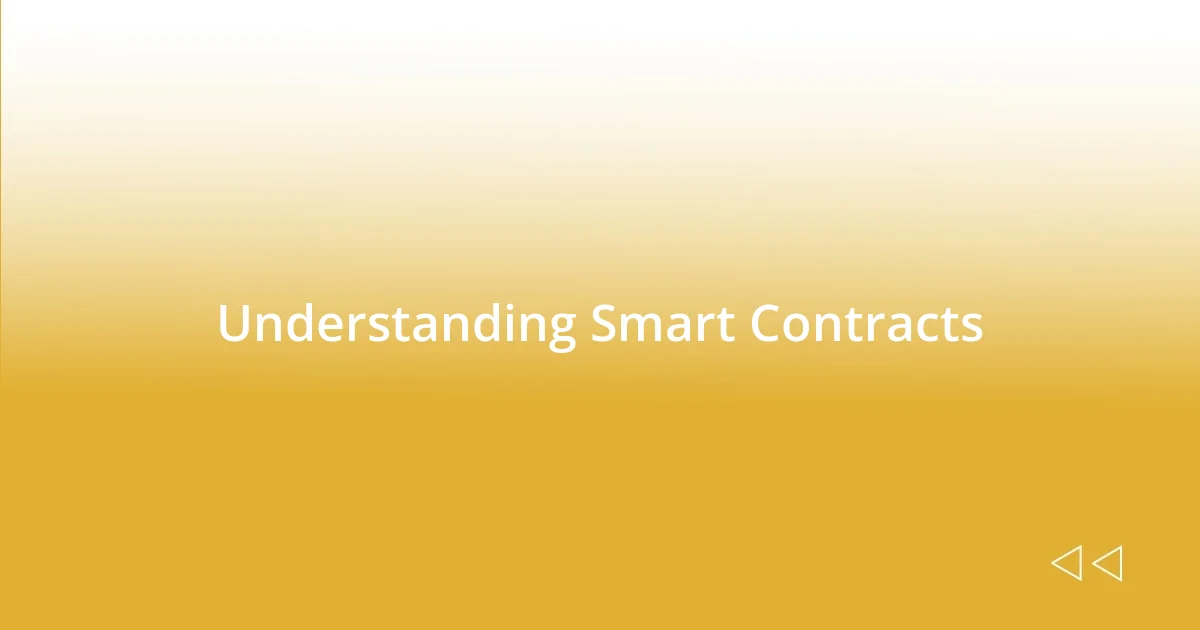
Understanding Smart Contracts
Smart contracts are self-executing contracts with the terms of the agreement directly written into the code. I remember the first time I encountered them; it felt like stepping into the future. How could a piece of code potentially eliminate all the headaches associated with traditional contracts? That’s when I realized how powerful this technology could be.
What fascinated me most was the transparency and security that smart contracts provide. Each transaction is recorded on a blockchain, making it immutable and easily verifiable. Once I started using smart contracts, I found myself less stressed about the details of my agreements. It was a relief to know that I didn’t have to chase clients for payments anymore; the contract would execute automatically upon reaching mutually agreed conditions.
In essence, smart contracts empower freelancers to maintain control over their work and finances. They transform what was once a complex and often frustrating process into a straightforward, worry-free experience. Have you ever thought about how much time and energy you could save if you didn’t have to constantly follow up on payment status? I’ve found that by adopting smart contracts, my focus could shift back to what I truly love – my craft.
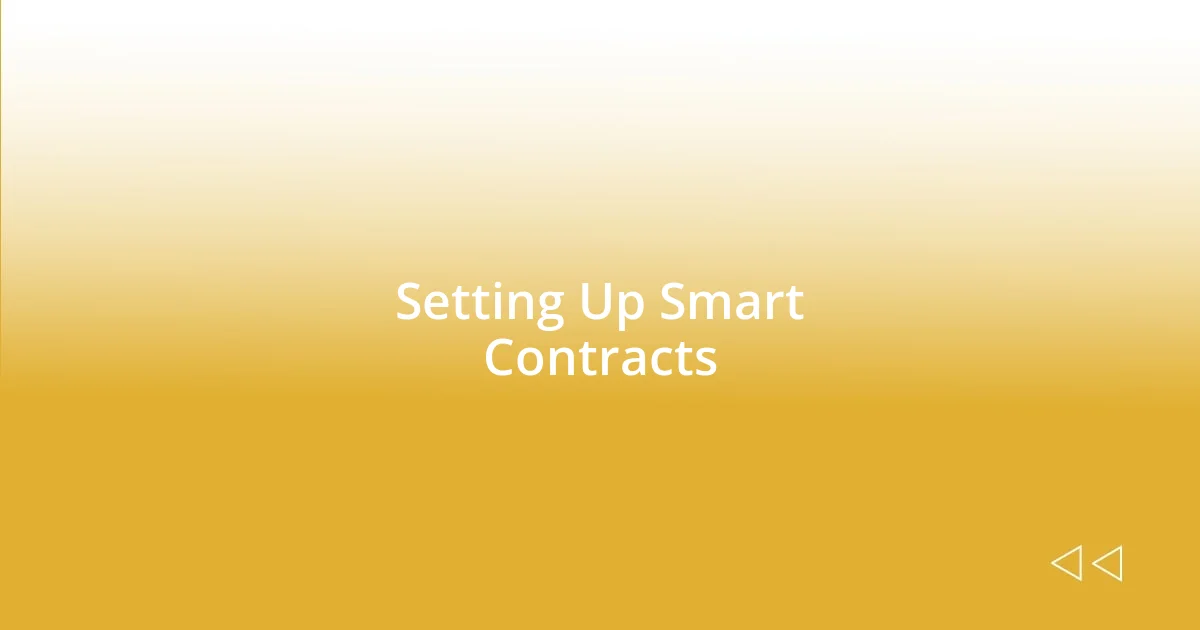
Setting Up Smart Contracts
Setting up smart contracts is an exciting journey that can feel overwhelming at first. I vividly recall my initial steps; it was like learning a new language. The key is to start small and familiarize yourself with the basics. Choosing a reliable blockchain platform is essential. I opted for one that suited my needs—user-friendly and well-documented, which made all the difference.
Here’s a quick guide to help you navigate the setup process:
- Research Platforms: Look into different blockchain platforms like Ethereum or Binance Smart Chain. Each has its unique features.
- Draft Your Contract: Outline the specific terms clearly. I remember drafting my first contract on paper, making it easier to transfer it into code later.
- Use Templates: Leverage existing smart contract templates. They can save you a lot of time and are often battle-tested.
- Test Your Contract: Deploy it on a test network to ensure everything works as intended before going live. I was relieved when I spotted a small error in my contract during this phase—it saved me from potential complications later.
- Seek Support: Don’t hesitate to ask for help. The community is usually welcoming, and I found several forums and groups incredibly insightful.
With a little patience and practice, setting up smart contracts can become a seamless part of your freelancing toolkit.

Choosing Platforms for Smart Contracts
When it comes to choosing platforms for smart contracts, it’s essential to consider factors like usability, community support, and security features. I remember when I was sifting through various options; it almost felt like I was shopping for the perfect pair of shoes. I wanted something that fits well and doesn’t just look good but also performs efficiently. Ethereum is like that classic shoe—well-established and widely supported—but sometimes its complexity can be a hurdle. In my experience, I found Binance Smart Chain to be a refreshing alternative, especially with its user-friendly interface and faster transaction times.
As I explored more platforms, I learned how integral the community around a platform can be. A strong developer community can be a lifeline when you encounter obstacles. I recall posting a question about a coding issue on a forum, and within minutes, I received helpful responses that guided me toward a solution. Engaging with these communities not only provided support but also a sense of camaraderie, which made the journey enjoyable and less daunting.
The final aspect to weigh is the cost of transactions when using different platforms. Some may have lower fees, while others could become pricey with increased usage. Balancing cost against features is crucial. I found that sometimes, investing a little more in a robust platform saves time and money in the long run due to fewer issues down the line. It often feels worth it to pay for peace of mind.
| Platform | Usability |
|---|---|
| Ethereum | High but complex |
| Binance Smart Chain | User-friendly |
| Polygon | Low fees, good speed |
| EOSIO | Highly scalable |

Common Mistakes to Avoid
Avoiding common mistakes when using smart contracts can save you time and stress. One major pitfall I encountered was rushing the drafting process; I wasn’t thorough enough with the contract terms. The shock of realizing a vague clause caused a disagreement with a client still lingers in my memory. Take the time to be crystal clear about your expectations—it’s worth it in the long run.
Another mistake is neglecting to thoroughly test your smart contract before deployment. I learned this the hard way when a tiny coding error led to unexpected complications with a payment. That experience taught me to never skip the testing phase, especially when dealing with real transactions. Consider what could go wrong—are you willing to gamble with your hard-earned income?
Overlooking the importance of community support is another area where I stumbled. Initially, I thought I could tackle everything alone, but that mindset kept me from finding valuable resources and answers. I now ask myself: why not leverage the collective wisdom of others who have walked the same path? Engaging with supportive communities has transformed my approach and opened doors to insights I would have missed otherwise.

Case Studies of Successful Freelancers
One freelancer I came across, Sarah, truly revolutionized her business with smart contracts on the Ethereum platform. After experiencing late payments that left her scrambling for cash, she decided to integrate smart contracts into her workflow. The newfound reliability not only stabilized her income but also attracted higher-profile clients who appreciated the upfront payment guarantees. Imagine transforming uncertainty into financial security—how empowering that must have felt for her!
Then there’s James, who operates on Binance Smart Chain. Initially hesitant about the transition, he finally took the plunge after a friend shared how it streamlined his processes. James was amazed by the speed of transactions and the user-friendly interface, which fit neatly into his workflow. Within a few months, he reported a noticeable increase in productivity and a decrease in time spent chasing down payments. How many freelancers can say they’ve reclaimed hours in their week, simply by adapting their systems?
Lastly, let’s take a look at Emily, who specializes in graphic design. By implementing smart contracts through Polygon, she managed to lower her transaction fees significantly. The best part? She no longer had to worry about clients disputing payments for completed work. Instead of stress, she now spends that time focusing on her creative projects, calling it a “game changer” for her business. Don’t you think it’s fascinating how embracing technology can redefine what’s possible in freelancing?





